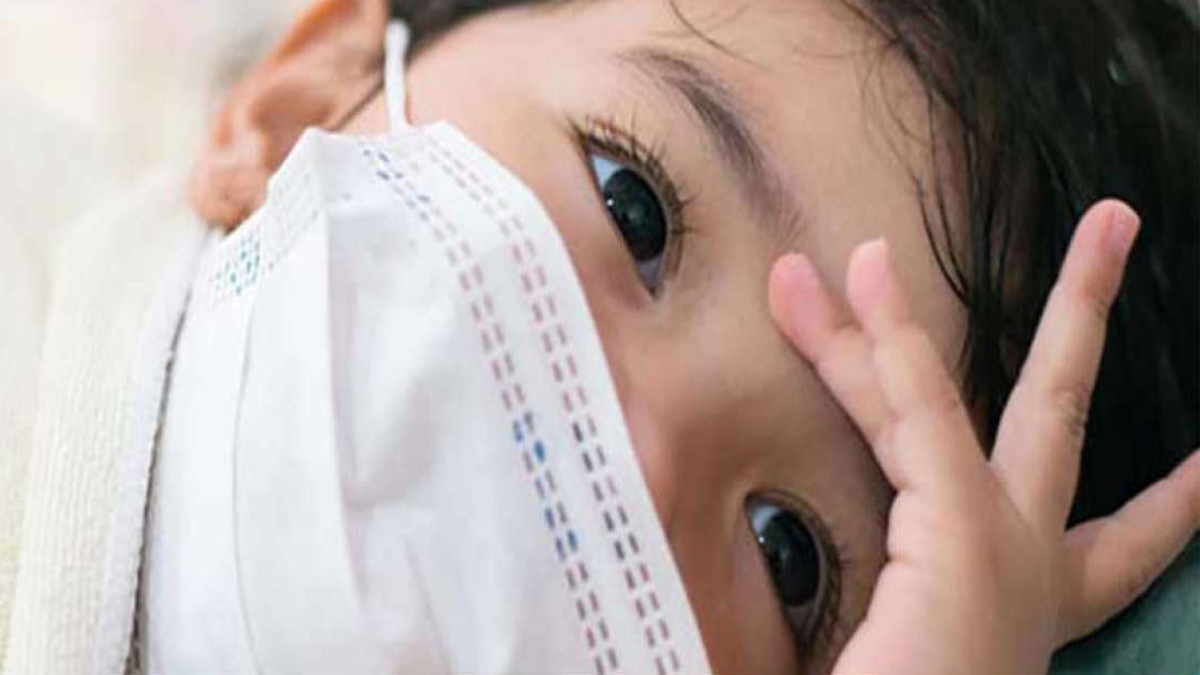


Covid-19 was not known to affect children in the first wave. However, it has not been the same in the second wave, as children and youngsters have been affected by the coronavirus. Though they are experiencing mild or moderate symptoms of the infection, post-Covid complications are what worry the parents.
COVID-19 AMONG CHILDREN
Adults were mostly affected by Covid-19 in the first wave. The immediate lockdown and closure of schools helped children to skip Covid’s radar. Though few children got infected, the symptoms among them were mostly mild or were asymptomatic. However, in the second wave, the number of children getting infected due to coronavirus has increased. The most concerning part are the increasing cases of MIS –C (Multi-system inflammatory syndrome in children).
MIS-C IN CHILDREN
Children affected by Covid-19 in the second wave are experiencing mild or moderate symptoms. However, post their recovery from Covid within two to four weeks or in few cases even beyond, they are found to develop high-grade fever and other complications which are known as MIS-C. This Multi-system inflammatory syndrome in children affects multiple organs like the heart, lungs, and brain. A child can experience different symptoms like:
• Rash on the body
• Conjunctivitis
• Abdominal pain
• Swelling in the neck
• High-grade fever
• Diarrhoea
• Vomiting
• Feeling tired
Some of the severe symptoms of the MIS-C could be trouble in breathing, pain or pressure in the chest, pale, grey or blue-coloured skin, lips, or nail beds, and severe abdominal pain. In few children, these symptoms may go to an extent of seizure or septic shock.
MIS-C mostly affects children after two to three weeks of testing positive for Covid-19. It is to be noted that, MIS-C is not a life-threatening condition and can be treated effectively if it is identified early. MIS-C is considered as an immunological reaction to a past Covid infection. Children with the condition may commonly test negative for RT-PCR/antigen test and will only be antibody positive. In one-third of infected children, MIS-C can mimic another disease called Kawasaki Disease associated with inflammation of the blood vessels to the heart. While most children with MIS-C recover extremely well with no significant long term sequelae, a small proportion can develop complications related to the heart.
MIS-C can occur in children of any age, however, it is mostly seen in kids in the age group of 3 to 12 years. Babies or older children may also have the risk of developing MIS-C.
COMPLICATIONS OF MIS-C
MIS-C is a complication that occurs due to Covid-19. Therefore, identifying the symptoms is crucial. A delay in treatment or inappropriate management can lead to severe problems to the vital organs like the heart, lungs, and kidney. In rare cases, MIS-C can lead to permanent damage to the organs or could be even fatal.
STEPS TO BE TAKEN TO KEEP THE CHILDREN AWAY FROM INFECTION:
• Hand hygiene –Ensure kids wash hands often with soap and water for at least 20 seconds. If soap is not available, use a hand sanitiser with at least 60% alcohol content.
• Keep children away from people who are sick –It is suggested to keep children away from unwell people, in particular, people who are coughing and sneezing.
• Social distancing – Ensure that your child maintains social distancing when outdoors.
• Wear face masks when in the outdoors – There is a high risk of Covid transmission when you and your child are outdoors. Make sure both of you wear a face mask that covers both nose and mouth.
• Avoid touching your nose, eyes and mouth – Encourage your child to follow your lead and avoid touching his or her face without washing hands.
• Cover your mouth when you sneeze or cough – Advise the kids to practice covering their mouths when they sneeze or cough to avoid spreading germs.
• Disinfect surfaces –Clean and disinfectareas of your home such as doorknobs, light switches, remotes, handles, countertops, tables, chairs, desks, sinks and toilets.
The writer is a Consultant, Columbia Asia Referral Hospital, Yeshwanthpur (A unit of Manipal Hospitals).